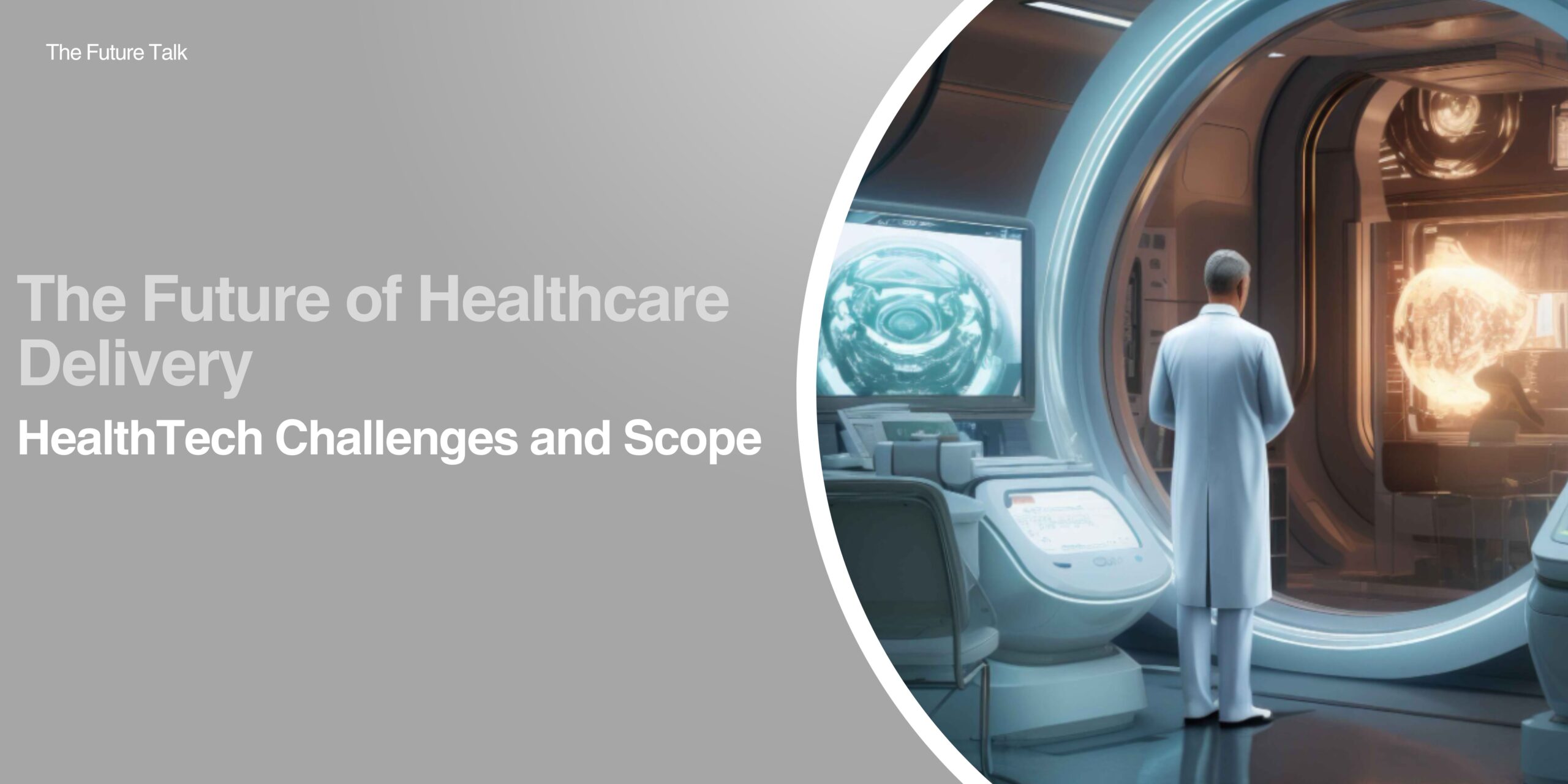With rapid technological developments, the landscape of healthcare technology continues to evolve at an exponential pace.

The healthcare industry has come a long way, witnessing a significant transformation in care delivery. From telemedicine and AI and ML to wearable devices and smart hospitals, the future of healthcare is becoming a reality; human-centric care.
The global Digital Health market is predicted to reach US$258.30 billion by 2029 from US$171.90 billion in 2024, growing at a CAGR of 8.49% during the projected period of 2024-2029, according to Statista.
The advancement of technology has enabled healthcare providers and businesses to expand their offerings not just by adopting revolutionary technologies but also by exploring their potential through innovations in the field.
Also Read: Top 10 AI Trends in Healthcare To Watch Out in 2025
Scope of HealthTech Innovations in Healthcare Delivery
With rapid technological developments, the landscape of healthcare technology continues to evolve at an exponential pace. Strategic planning and investment in digital health will help care centres and organizations meet people’s healthcare needs and drive innovation.
Let’s have a look at the areas where healthtech is making an impact:
Telemedicine
Telehealth and telemedicine refer to virtual consultations where patients consult with healthcare providers remotely. This significantly improves access to care, especially in rural or underserved areas.
With telemedicine, remote monitoring becomes easier. It just happens using wearable devices and home monitoring systems, tracking vital signs, enabling continuous patient monitoring and timely interventions.
Impact:
- Increased Access
- Cost-Effectiveness
- Chronic Disease Management
Artificial Intelligence
AI algorithms can assess medical images (X-rays, MRIs) with high accuracy and help in the early detection of diseases like cancer. It can also perform predictive analytics by predicting patient outcomes, disease outbreaks, and hospital readmissions. This will significantly aid in proactive care.
Impact:
- Improved Accuracy
- Personalized Treatment
- Operational Efficiency
Wearable Technology and Mobile Health Apps
The future of healthcare and medicine is largely driven by connected devices – wearables and mobile health apps. These devices empower patients as well as individuals to take care of their health.
Fitness trackers are another healthtech advancement, monitoring physical activity, sleep patterns, and heart rate, and promoting preventive care.
Impact:
- Patient Engagement
- Preventive Care
- Data Collection
Medical Robotics and Embedded Devices
The proliferation of robotics in healthcare has already sparked the buzz about how doctors do surgery and handle patients. In the coming years, the industry will witness the adoption of medical robotics and embedded devices and more such advancements.
These advancements will set a new standard of patient care while contributing to better treatment outcomes.
Impact:
- Minimally invasive procedures
- Robotic exoskeletons
- Smart implants
Genomics and Personalized Medicine
As an evolving medical discipline, genomic medicine consists of using genomic information about an individual as part of their clinical care. With genomic sequencing, health professionals analyze an individual’s genetic code to envisage disease risk and tailor treatments.
Conversely, pharmacogenomics examines how genes affect a person’s response to drugs, leading to personalized medication regimens.
Impact:
- Targeted Therapies
- Innovative Treatments
- Disease Prevention
Some other technological advancements revolutionizing healthcare are:
Extended Reality
One of the modern technological advancements is extended reality (XR) which combines virtual reality (VR), augmented reality (AR), and mixed reality (MR). As this technology is in its infancy, it has already created an impact in healthcare.
For example, neurosurgeons at Johns Hopkins University, in 2020, performed their first AR-assisted spinal fusion surgery.
Portable Diagnostics Devices
As a measurement tool, portable diagnostics devices are capable of diverse functions, ranging from blood analysis to complex imaging. Portable diagnostics are indispensable in several key areas, such as remote healthcare, emergency medicine, home healthcare, and military medicine.
Also Read: How Artificial Intelligence Can Power Corporate Social Learning
Challenges in Health Tech Integration
While the integration of advanced technologies in healthcare has brought numerous benefits, it also presents certain challenges. These challenges can range from technological and regulatory aspects to financial, organizational, and social dimensions.
Regulatory and Compliance Issues
- Regulatory frameworks are complex, and innovative technologies must navigate them to ensure safety and efficacy. A long and costly approval process can delay the adoption of new technologies.
- To safeguard patient privacy and data security, compliance with data protection laws is critical, including the General Data Protection Regulation (GDPR).
Interoperability and Integration
- A significant challenge in healthcare is integrating new technologies with existing systems. A lack of interoperability can cause fragmentation of care and inefficiencies in the exchange of data between different systems.
- To ensure that different health tech solutions can work together effectively, standardizing data formats and communication protocols is essential.
Cybersecurity Risks
- Cyberattacks have become common in today’s increasing digitization of healthcare. To ensure the security of connected medical devices, safeguarding sensitive patient data from breaches is paramount.
- For enhanced protection, healthcare organizations must invest in robust cybersecurity measures, such as authentication, encryption, and regular vulnerability assessments.
Apart from these, cost and accessibility, and ethical and societal implications are other key challenges that must be addressed.
The Future of HealthTech Innovations
Healthtech is set to revolutionize the field of healthcare and patient care delivery. Thus, it is essential for organizations to stay ahead of revolution and harness innovations to stay ahead of the curve. Here are some of the innovations shaping the future of health tech and healthcare delivery:
- Internet of Medical Things (IoMT)
- Remote and Virtual Care
- Healthcare Data Intelligence
- Direct-to-Consumer Genetic Testing
- Digital Therapeutics
- 3D Printing and Bioprinting
Conclusion
The rapid health tech innovations are driving improved patient outcomes, streamlining operations, and minimizing costs. From telemedicine to artificial intelligence (AI) and IoMT, healthtech is enhancing access, efficiency, accuracy, and patient engagement.
Government initiatives, skill development, upskilling talent, and streamlining the regulatory processes will enable healthcare providers to meet the evolving needs of improved patient care and overall health outcomes.
Stay tuned to The Future Talk for more such interesting topics. Comment your thoughts and join the conversation.